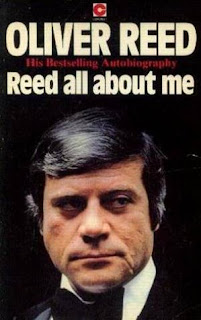I actually saw this book in a free shelf in Berkeley but decided against it as my on-deck shelf is so full. A few days later, my sister brought it home as a joke for me. I'm glad she did because it ended up being quite a good read. I wonder if this falls under the category of forgotten book? It appears to have been quite a big success but I had never heard of it nor of the author.
Normally, a book like this would annoy me, as it is basically a genre revenge thriller gussied up with literary pretentions. It's written well enough that I got quite into it. Its literariness was not too pushy and its flaws were those found in thrillers of the period, mainly around the sexual politics. The book starts out with David Hook, a successful midwestern farmer at the funeral of his eldest son. Though we get the premise right away, it takes a long time to get to the details. This is where the literariness gets in the way of the efficiency one appreciates in a good action book from this time. It's not too annoying because the writing is so good and it does help establish Hook's character. His son was a great kid, who was going off to college before the draft and then coming home to take over his father's farm. However, he wanted to travel for a few months and met his end in California, supposedly killing himself by jumping off the cliff of a wealthy young woman's house in Santa Barbara.
The plot and premise reminded me a lot of The Limey, where the protagonist comes out to California to trace his child's death and learns more than he bargained for. It's pretty clear here, though, that the son truly was a good kid and really did love his father (and Hook is a tough guy but not a criminal himself). We meet a great cast of early 70s decadent Californians: the upcoming political star, his ugly mannish PR exec, his slutty aristocrat girlfriend, the ex-jock bodyguard and lots of extreme hippies. Though ostensibly liberal and meant for a liberal audience, this book has the ongoing self-loathing of the coastal elite that we see so prevalent in American culture today. The progressive politician is a sociopath hypocrite. All the hippies and gays are hopelessly doped up and lost. It's the good old salt of the earth family man who is the only real one (and maybe the vet cop).
I was actually quite into this book in the first half. It has a very satisfying slow burn where you are psyched for him to head out to California and avenge his son. When you get into the actual plot of figuring out the situation the son got into and trying to reveal the truth, that is also intriguing. The middle bogs down a bit when the principle characters are established and the reader has a pretty good sense of who the bad guys are. Here we also fall into the classic establishment fantasy trap of the older man having great sex with a super hot younger woman. I get the fantasy, but at this point it is just so cliched and sad that it really does undermine anything "literary" in this book. It's particularly egregious here when he picks up a prostitute and suddenly is able to last super long and surprises her by making her have an orgasm and then she wants to spend the night with him and give him a freebie in the morning. Insert rolleyes emoji here.
I quite enjoyed it and it was a real page-turner up until the end when it really does get quite depressing. Though flawed, it will stay with me. And I'd like to visit Santa Barbara one day.
Did a bit of research and Thornburg was quite successful in his day and ended up dying not very well remembered. Man, writing is brutal.














